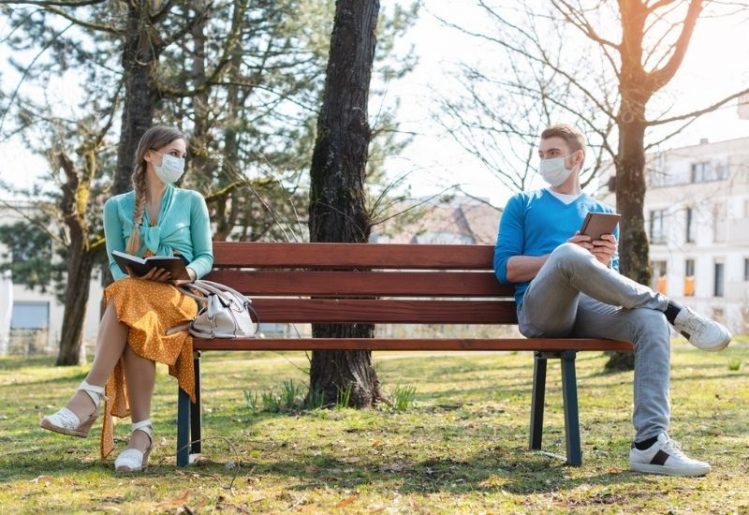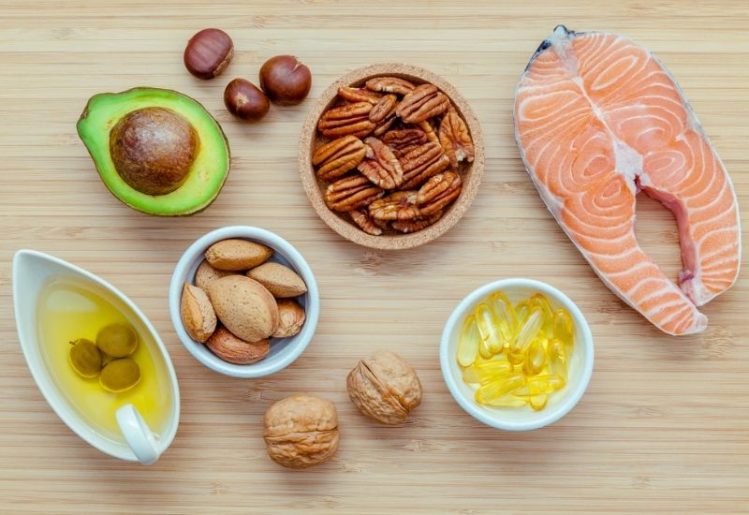In the past, it was revealed that the COVID-19 lockdowns and self-isolation contributed to a rise in emotional health problems. While this is disturbing in itself, an additional concern has been that these practices may have also had adverse effects on physical health by compromising the strength of the immune system in certain cases. Learn more about how COVID-19 lockdowns affect the immune system.
New Research Examines How COVID-19 Lockdowns Affect the Immune System
 How COVID-19 lockdowns affect the immune system has become a common concern among many people in recent times. The concern is that isolation and social distancing could be contributing to poor immune system health by preventing people from exposing themselves to the bacteria, viruses and germs that would otherwise force the immune system to maintain stronger defenses.
How COVID-19 lockdowns affect the immune system has become a common concern among many people in recent times. The concern is that isolation and social distancing could be contributing to poor immune system health by preventing people from exposing themselves to the bacteria, viruses and germs that would otherwise force the immune system to maintain stronger defenses.
Fortunately, lockdowns and isolation should not cause the immune system to lose the knowledge it has acquired in the past, so there’s no reason to believe that your body will no longer be able to fight off disease-causing microbes. By the time an individual reaches early adulthood, the body has already learned to fight off common threats to health. Even after a period of lockdowns and self-isolation, the immune systems of healthy adults should still be strong enough to eliminate most common microbial threats.
The story is a little different for children. When babies are born, they have the immune system that’s necessary to fight off diseases, but a lack of exposure to microbial threats means the child’s immunity isn’t fully developed. Young children need to be exposed to bacteria, germs and other threats to help their immune systems learn how to combat those threats. Doctors believe decreased exposure to these threats through more sanitary play and learning environments could be responsible for the increased incidences of eczema, hay fever, asthma and other respiratory conditions.
In short, exposure to microbial threats isn’t as necessary to continued immunity as many people believe it to be. This exposure is essential during pregnancy and through the first few months of infancy, but it becomes less important as the child ages. Instead, good hygiene and sanitary environments are actually more helpful to the immune system as children grow older. Professor Sally F. Bloomfield adds that it’s impossible to maintain an environment that’s completely free of hazardous microbes regardless of how frequently a parent cleans. As soon as those microbes are removed, more will come along to contaminate the same surface.
The answer is that moderate exposure to microbes is beneficial to immunity, but good hygiene practices are also important. For instance, taking the family for a daily “lockdown walk” to get some exercise is a good way to stay safe but also get exposure to an outdoor environment. Even allowing young children to play with friends at a playground can be beneficial; just be sure they wash their hands as soon as they get home. As more studies on how COVID-19 lockdowns affect the immune system get underway, researchers hope to find more information about how lockdowns, social distancing and self-isolation affect unborn babies and teen children.
Natural Ways to Boost the Strength of Your Immune System
If you’re concerned about keeping your immune system strong in a post-COVID world, there are plenty of natural ways you can boost your immune system. Here are a few suggestions that you can implement with your family to help keep everyone safe and healthy.
Regulate Your Circadian Rhythm
Your circadian rhythm is the biological clock that manages the various systems throughout your body. New research has found that it also regulates the release of microphages, which are immune cells that attack unwanted bacteria throughout the body.
When your circadian rhythm is disrupted, microphages can’t properly fight off disease-causing microbes. This is why people with irregular sleeping patterns have a greater risk of developing heart disease, type 2 diabetes, metabolic syndrome, cancer and other degenerative illnesses.
Proteins released by the circadian system help to regulate the production of enzymes and hormones, which, in turn, affect the functioning of the immune system. However, the positive proteins that regulate this system are sometimes blocked by negative proteins. This blockage remains in effect until the negative proteins degrade. This is a condition that can quickly create a cycle in which the positive and negative proteins are continuously interacting, preventing the positive proteins from functioning. Researchers believe these findings confirm that our circadian rhythm plays a key role in keeping our immune systems functioning optimally.
Get Better Sleep
Even though you may know that sleep is important for your health, it’s specifically vital to the production of T cells. These are the cells the immune system sends to lymph nodes, where those cells are then assigned specific tasks. In studies conducted on sleep, it was discovered that people who were denied sleep exhibited a T cell deficiency. T cells contain memory, which allows them to learn how to fight specific threats and store that information for future use.
To maintain a higher count of T cells, you can improve the quality of your sleep with the following tips:
- Stop drinking caffeine six hours before bed.
- Turn off your mobile device one hour before bed.
- Replace scratchy or uncomfortable bedding.
- Create a restful atmosphere by turning up the AC, wearing earplugs and putting on a sleep mask.
- Engage in a relaxing activity, such as taking a warm bath, meditating or practicing yoga.
- Take a sleep supplement that contains melatonin.
Other Methods for Boosting Immunity
 There are many more ways to naturally boost your immune system, such as:
There are many more ways to naturally boost your immune system, such as:
- eating more plant-based foods
- quitting smoking
- reducing your consumption of alcohol
- reducing your intake of refined sugar, trans-fat and cholesterol
- exercising for 30 minutes each day
If you’re still concerned about your immune system’s strength, talk to your doctor. Your primary care physician will be familiar with your medical history, giving them the information to provide you with insight tailored to your situation. Under the guidance of your doctor, you can ensure you’ll live a longer and healthier life.
 You do not have to be a health nut to know that omega-3 fatty acids are one of the most important nutrients that you can give your body. But what exactly are these fatty acids and how do they benefit your body?
You do not have to be a health nut to know that omega-3 fatty acids are one of the most important nutrients that you can give your body. But what exactly are these fatty acids and how do they benefit your body? While nearly all seafood contains omega-3s, some sources are more nutrient dense than others. Salmon is a particularly rich source of omega-3 fatty acids. Herring, sardines and shellfish such as lobster and scallops also supply this nutrient. Next time you make a sandwich, consider spreading a tablespoon of mayonnaise on the bread to increase your intake of omega-3 fatty acids.
While nearly all seafood contains omega-3s, some sources are more nutrient dense than others. Salmon is a particularly rich source of omega-3 fatty acids. Herring, sardines and shellfish such as lobster and scallops also supply this nutrient. Next time you make a sandwich, consider spreading a tablespoon of mayonnaise on the bread to increase your intake of omega-3 fatty acids. Your gut microbiome
Your gut microbiome A study out of Kiel University has recently established a connection between the genetic variations that are responsible for your
A study out of Kiel University has recently established a connection between the genetic variations that are responsible for your  Burnout syndrome
Burnout syndrome It is easy to think that you are alone in the fight if you are not willing to talk about your emotions. Talking about your feelings and putting them out there will provide a necessary emotional release. Along the way, you may find different ways to deal with your workplace struggles.
It is easy to think that you are alone in the fight if you are not willing to talk about your emotions. Talking about your feelings and putting them out there will provide a necessary emotional release. Along the way, you may find different ways to deal with your workplace struggles. While some people are genetically predisposed to experience eye health issues due to their racial heritage or family health histories, there are other factors that raise the risks of developing vision problems. For instance, people who are obese or who consume high amounts of sugar are more likely to suffer from vision problems.
While some people are genetically predisposed to experience eye health issues due to their racial heritage or family health histories, there are other factors that raise the risks of developing vision problems. For instance, people who are obese or who consume high amounts of sugar are more likely to suffer from vision problems. Certain conditions, including hypertension and multiple sclerosis, can pose a danger to your vision if you don’t take steps to control them. This is because these types of medical conditions lead to chronic inflammation throughout the body. Once inflammation develops in or around the eyes, your vision will be affected. In taking steps to reduce inflammation and control the other symptoms of degenerative diseases, you’ll better protect your eye health.
Certain conditions, including hypertension and multiple sclerosis, can pose a danger to your vision if you don’t take steps to control them. This is because these types of medical conditions lead to chronic inflammation throughout the body. Once inflammation develops in or around the eyes, your vision will be affected. In taking steps to reduce inflammation and control the other symptoms of degenerative diseases, you’ll better protect your eye health. Most people are concerned to some degree with maintaining their youthful appearance, which is why there’s such a huge range of available products designed to care for your skin. Additionally, your skin acts as a barrier that protects your internal organs. Unless you suffer an abrasion or laceration that compromises your skin, it will keep diseases and bacteria from accessing your body and adversely affecting your internal organs.
Most people are concerned to some degree with maintaining their youthful appearance, which is why there’s such a huge range of available products designed to care for your skin. Additionally, your skin acts as a barrier that protects your internal organs. Unless you suffer an abrasion or laceration that compromises your skin, it will keep diseases and bacteria from accessing your body and adversely affecting your internal organs. Horsetail
Horsetail